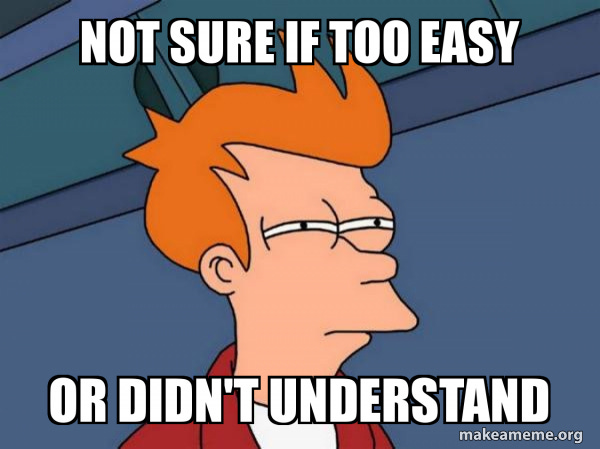Note: This is a 6-part series. See the introduction to the series for links to other posts in this series.
Let's suppose that there is a permanent happiness switch in our brains -- would you flip it? While many people would, I imagine a large number of people wouldn't. Something about it would feel too easy.
This suspicion that it'd be "too easy" to just choose happiness goes beyond thinking that such a switch couldn't exist (that is, the intuition from the previous post that "choosing happiness" simply isn't within our control). This deeper suspicion hints at several other human needs and intuitions, and the need to broaden our scope of either what it means to be happy, or well-being in general.
The first intuition is that if there really were a switch, then it can feel like the onus for our happiness lies all on ourselves. In a sense, we are then responsible for our own unhappiness. This can lead to a sense of guilt that often accompanies the backfiring of "toxic positivity."1 Sometimes we force it on ourselves and other times we try to shame other people into being happy (e.g. "Just think of X! You “should” be grateful for Y!"). Too much freedom can feel like too much responsibility.2
The second intuition is that we see people trying to "choose happiness" all the time, with variable outcomes. To observers these decisions oftentimes manifest as detrimental behaviors. For instance, one path of least resistance to being happier in the moment is oftentimes through denial of facts and loss. If one is more creative, one can create longer-lasting narratives of self-celebration and importance3 — but taken too far those narratives can also metastasize into conflicts when narratives held by different people clash. There's no question that a decision to embrace ignorance can bring subjective bliss. But to outside observers such an approach can feel precarious, and it would appear life is not just about being happy.
The previous observation is related to a third intuition: that we want to be tethered to reality, and “simply choosing happiness” can feel artificial. And it might even... feel boring. Even if all practical aspects of life were taken care of, there can be a feeling within us that we'd actually want some uncertainty, some risk, some grand project to work on. Maybe it's not that we want risk per se, but that something about risk feels more grounded. There are countless thought experiments that get at this idea -- Nozick's experience machine, Brave New World, medication and drugs to name a few. In the movie world of The Matrix, the lore is that that the first version of the Matrix was built to be a paradise for the human subjects, but after a while the people couldn't believe the utopia was real, grew suspicious of it, and forced the machine to design Matrix 2.0, a more "real" world with suffering.
As Nozick put it, we don't just want to be happy. Even if it is ill-posed and poorly defined, we want to feel like we're doing something real, to be in contact with something deeper, even if in a hypothetical world we can't tell the difference.4 Similarly, challenge is also a critical part of Csikszentmihalyi's concept of flow. Accomplishments feel better if there is a challenge and if success isn't guaranteed.
Would flight feel as exhilarating and freeing without gravity?
See this recent psychology study. Alternatively, see how the researchers summarized their work and literature in a piece for the lay audience.
The anxiety of choice and responsibility is a central theme in existentialist philosophy. According to observations by Sartre, de Beauvoir, Camus, and more, it is instinctual to run from this anxiety, in a phenomenon that they call inauthenticity.
Whether you believe in God or not, God is perhaps the canonical eternal narrative of the eternal. But talk of the eternal is not only the providence of religion: any “ism” that says leans into an absolute frame of reference operates in a similar way (even rationalism, nihilism, cynicism).
Of course, this intuition that we want things to be “real” is not universal. E.g. see “If You Like It, Does It Matter If It's Real?” by philosopher Felipe de Brigard. Similarly, in a position assumed by the character Cypher from the movie The Matrix, people may ultimately simply choose the experience that they like more, "real" be damned, especially if "real" can't reliably be ascertained (or defined!). The idea is that initial intuitive objections to the Nozick-ian "artificial" experiences may simply because of a failure of imagination of how great those experiences might be.



